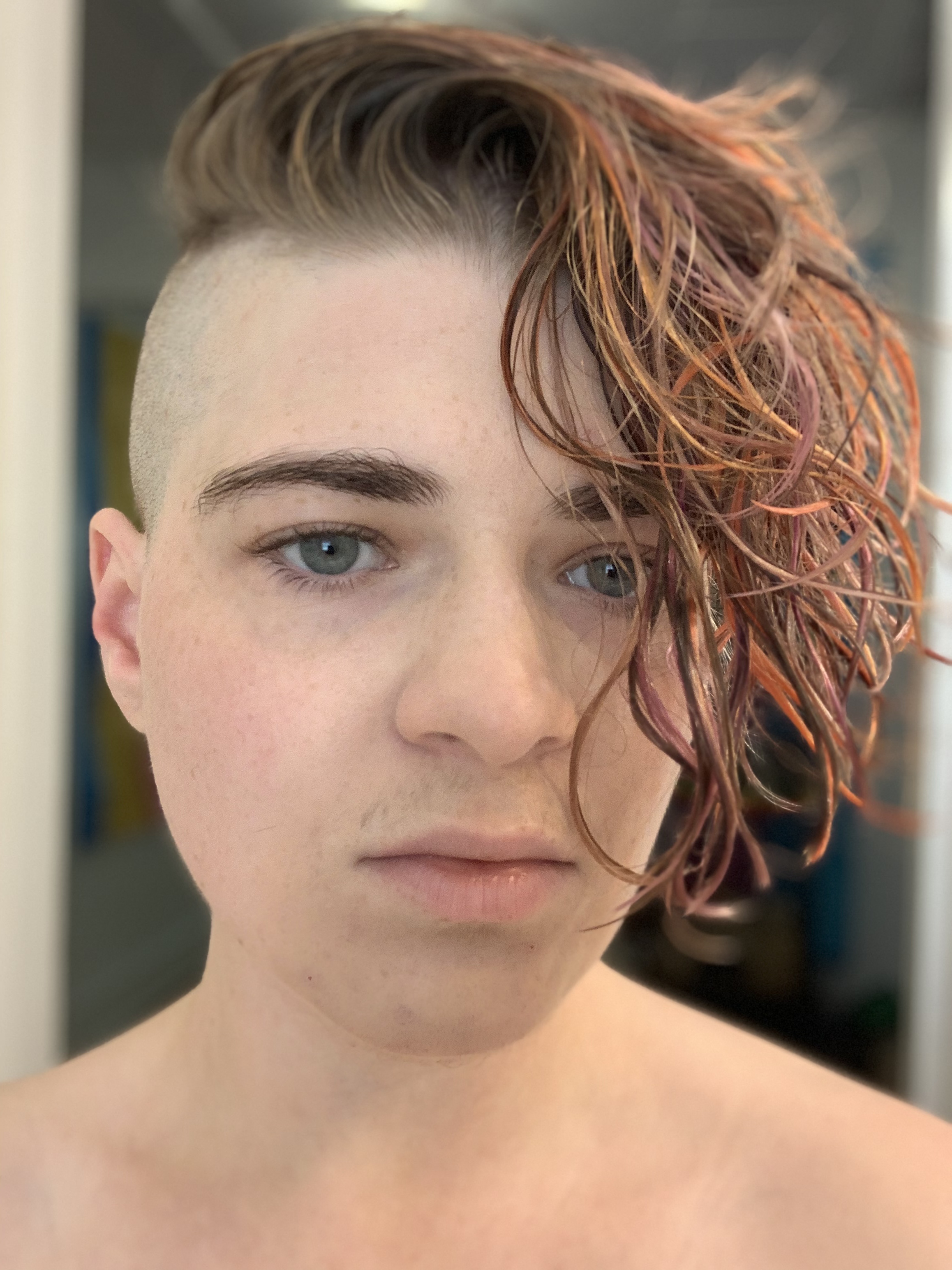Soph Myers-Kelley

When I was diagnosed with vulvodynia and hypertonic pelvic floor dysfunction, I was a cisgender woman. It rocked my entire world thinking how it could be harder to find a partner, have sex, work, travel, and wear tight clothing because of this new diagnosis. It was scary and I didn’t want to face that truth. I cried in front of the doctor who diagnosed me, and she noted that in my patient records as if she were surprised someone would have that reaction to getting a painful diagnosis with no surefire cure.
Now, five years later, I’ve undergone many transformation journeys beyond those two first diagnoses. Part of that journey is coming to accept PVD and vulvodynia are natural parts of my life at this time. My pelvic pain is largely attributed to a condition called Ehlers-Danlos syndrome, which affects all of the collagen in my body. I’ve also found out I’m autistic and have ADHD. But one of the most significant discoveries has been recognizing I am not a cisgender woman, but a transgender, nonbinary ethereal being.
Going on testosterone, getting top surgery (having my breasts removed), changing my legal name, and changing up my hairstyle and clothing has brought a lot of joy and radiance to my world. Taking steps and seeing how it brings me closer to who I am and want to be is an honor to see and make happen. However, this has complicated my health journey, a journey that has already been too complicated for my liking.
On top of having multiple systemic conditions and chronic pain, I now think about whether health care providers will correctly gender me. I don’t use she/her pronouns anymore, sticking largely to they/them and he/him pronouns. I wonder when I enter say, a women’s health clinic for a gynecological-related appointment if they will assume I’m a woman just from walking in. Will they notice my deeper voice? My hairstyle? My pronoun pin? Usually (since I’m only a year into my physical transition) they do not. I’m hopeful that in a few years’ time on testosterone, that will change. Regardless, it frustrates me knowing that people like me will continue to struggle with having vulvodynia AND being misgendered, disrespected and isolated from spaces meant to be supportive. Spaces for vulvodynia havers, not just cisgender women.
As I continued in my transition, I had to leave more social media support groups that continued to use language that only included females, even after nonbinary and trans people respectfully took their time to explain why language change would make so many people’s days. People even offered ideas for more inclusive language. The people who fought against inclusion made me realize I didn’t need that kind of support, a support that didn’t see and respect me for who I am.
Having a vulva does give me a bit of dysphoria from time to time (feeling an incongruence between my internal self and my external body) but it is made far worse when people assume who I am just because I have one. Over the years I have learned how to manage my vulvodynia and avoid triggers when possible. I’ve found beauty in low-crotch pants, working with a physical therapist, managing wider systemic pain and food sensitivities, and incorporating medications as well as more traditional treatments like herbs into my care routine.
Some of my identities help make living with vulvodynia much easier, surprisingly. A beautiful thing about being polyamorous and queer is that, more often than not, queer partners are happy to have sex without penetration, be extremely consent forward when engaging in penetrative sex (i.e., happy to stop if it hurts and you say so), and more than happy to be close without being sexual at all! It’s such a relief to know that the right partner(s) will value me for who I am, not what kind of sex acts I can or can’t perform.
It’s been a bumpy ride from being a cisgender, straight, monogamous, able-bodied, neurotypical woman to becoming a transmasculine, genderqueer, gay, neurodivergent, disabled medical librarian. At times the pain is completely unbearable, I understand. And yet because of it, I’ve found all of the disability gains in this beautiful, painful life of mine. I live and stand up for my name, my pronouns, my pain management needs, and the needs of my community in hopes that we will one day live in a better world.